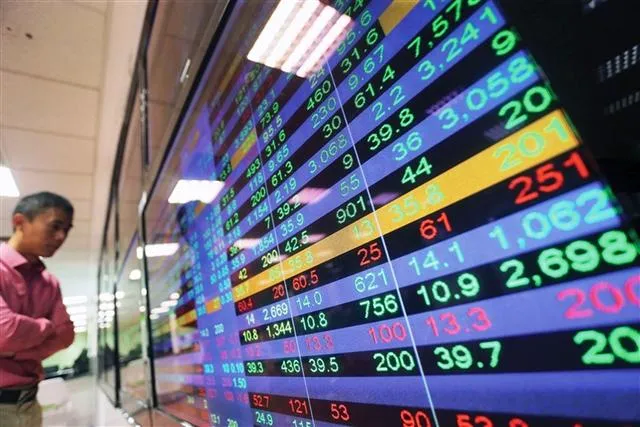
Mr. Khanh spoke with Saigon Investment on how the Vietnam stock market could be affected with this current crisis in Ukraine, and how it will compare to the world stock market and other financial institutions. Mr. Khanh said that the US stock market has fallen sharply, but the domestic stock market in Vietnam only dropped on 24 February, but then rebounded the very next day, despite the ongoing war. The fall was however not too sharp, and some industries such as energy and retail seemed to have benefited.
Mr. Khanh believes that because of the current ongoing Russia-Ukraine crisis, the stock market in Vietnam has certainly been affected, but only in the short term and the extent of the fall has not been too strong. However, with time it will be more affected in the medium and long term. Even though the war may end soon, the consequences will be long lasting on the general economy. Central Banks around the world are now racing to raise interest rates as well as tighten monetary policies. It is expected that assets earlier classified as safe investments, such as gold, will attract investors for the sole purpose of sheltering and reducing risks.
JOURNALIST: - Sir, can you explain very clearly the impact of the ongoing Russia-Ukraine conflict on the economy in general and the stock market in particular?
Mr. PHAN DUNG KHANH: - The war may be on for a short time only, but the long-term impact is what we need to pay attention to. Many people think that because of this war, the US Federal Reserve (Fed) and other Central Banks will consider changing their monetary policy by not raising interest rates, or even loosen economic support, thereby invigorating financial markets.
However, the Central Banks will be stuck in a dilemma as the Covid-19 pandemic is still complicated, the price of raw materials is increasing, the price of oil has reached USD 100 per barrel, and in this current conflict between Russia and Ukraine, the price may continue to go even higher, which will put more pressure on inflation. In addition, Russia and Ukraine play a huge role in providing important essential products to the world, especially in the field of technology, which is an important foundation for advancing towards the 4.0 era.
According to statistics, Russia currently accounts for 45% of the global palladium supply, and 35% of the palladium in the US is imported from Russia. Palladium is used mainly in the manufacture of sensors and memory cards. Ukraine supplies the United States with more than 90 percent of semiconductor neon gas, a key ingredient for lasers used in chip making. Since December 2021, tensions between the two countries has caused the price of palladium to increase by 52%.
In 2014, when Russia annexed Crimea, the cost of producing neon lights increased by 600% overnight. Russia also holds a very large amount of nickel mining, and if supply is interrupted or prices rise, electric vehicle batteries and other related equipment will become scarce and much costlier. The electric vehicle industry alone has seen its highest growth ever of 122% in 2021.
Therefore, even if the war comes to an end soon, its economic consequences will be long-lasting. Accordingly, the US and Western sanctions against Russia may cause monetary and fiscal policies to change, which will have a partial impact on the market. Safe investments like gold will attract cash flow for the purpose of sheltering and reducing risks.
- Sir, if the stock market is affected by many unknown factors today, what advice would you give to investors? Should they buy gold at this time?
- In my opinion, short-term investors can still surf the group of stocks that are benefiting such as energy, consumer goods, raw materials, technology, and finance. However, it is advisable to divide the portfolio and add defensive stocks with foundational elements. At the same time, minimize borrowing and margin at this time. For medium and long-term investors, this is the time to restructure the portfolio into stocks with good foundations.
The recommended method is Dollar-Cost Averaging (DCA), instead of or using financial leverage. The market will certainly be volatile, but we can educate ourselves and build a flexible investment strategy for different phases in the market. This way, you will no longer be affected by market fluctuations and fraudulent groups that adversely affect your financial health.
At this time, individual investors should not buy gold if they intend to hold it only in the short term. It should be noted that the price difference in hot market times has greatly widened. The selling price and the difference with the world price is now up to VND 12 mn to VND 13 mn per tael, so holding in the short term is even riskier.
Therefore, investors who do not intend to hold for a long-term and intend to buy new, should only have a certain proportion. Depending on age and risk tolerance, investors should only allocate a 10-50% investment in gold. In particular, investors should not use borrowed money to buy gold, or just hold most of it in their investment portfolio. However, investors who bought at the low price before the recent volatile crisis, can hold on for another one or two years.
- Sir, what do you think about the net selling trend of foreign investors in coming time?
- In my opinion, this trend will be difficult to change. Foreign investors have been net sellers for the last two years for the short term, so their net buying will also be difficult to stabilize, especially under the current unstable world situation. Institutional investors are more cautious, so it is difficult to expect them to disburse strongly in the near future.
- Thank you very much.




















